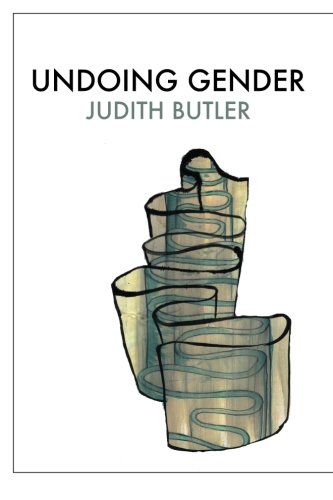Expert choice for gender trouble judith butler
When you want to find gender trouble judith butler, you may need to consider between many choices. Finding the best gender trouble judith butler is not an easy task. In this post, we create a very short list about top 8 the best gender trouble judith butler for you. You can check detail product features, product specifications and also our voting for each product. Let’s start with following top 8 gender trouble judith butler:
Best gender trouble judith butler
1. Gender Trouble: Feminism and the Subversion of Identity (Routledge Classics) (Volume 36)
Feature
RoutledgeDescription
One of the most talked-about scholarly works of the past fifty years, Judith Butlers Gender Trouble is as celebrated as it is controversial.
Arguing that traditional feminism is wrong to look to a natural, 'essential' notion of the female, or indeed of sex or gender, Butler starts by questioning the category 'woman' and continues in this vein with examinations of 'the masculine' and 'the feminine'. Best known however, but also most often misinterpreted, is Butler's concept of gender as a reiterated social performance rather than the expression of a prior reality.
Thrilling and provocative, few other academic works have roused passions to the same extent.
2. Gender Trouble
3. Notes Toward a Performative Theory of Assembly (Mary Flexner Lectures of Bryn Mawr College)
Description
A Times Higher Education Book of the Week
Judith Butler elucidates the dynamics of public assembly under prevailing economic and political conditions, analyzing what they signify and how. Understanding assemblies as plural forms of performative action, Butler extends her theory of performativity to argue that precaritythe destruction of the conditions of livabilityhas been a galvanizing force and theme in todays highly visible protests.
Butlers book is everything that a book about our planet in the 21st century should be. It does not turn its back on the circumstances of the material world or give any succour to those who wish to view the present (and the future) through the lens of fantasies about the transformative possibilities offered by conventional politics Butler demonstrates a clear engagement with an aspect of the world that is becoming in many political contexts almost illicit to discuss: the idea that capitalism, certainly in its neoliberal form, is failing to provide a liveable life for the majority of human beings.
Mary Evans, Times Higher Education
A heady immersion into the thought of one of todays most profound philosophers of actionThis is a call for a truly transformative politics, and its relevance to the fraught struggles taking place in todays streets and public spaces around the world cannot be denied.
Hans Rollman, PopMatters
4. Gender Trouble: Feminism and the Subversion of Identity (Thinking Gender S.) by Judith Butler (1-Mar-1990) Paperback
Description
"Naturalness of Gender"5. Undoing Gender
Feature
RoutledgeDescription
Undoing Gender constitutes Judith Butler's recent reflections on gender and sexuality, focusing on new kinship, psychoanalysis and the incest taboo, transgender, intersex, diagnostic categories, social violence, and the tasks of social transformation. In terms that draw from feminist and queer theory, Butler considers the norms that govern--and fail to govern--gender and sexuality as they relate to the constraints on recognizable personhood. The book constitutes a reconsideration of her earlier view on gender performativity from Gender Trouble. In this work, the critique of gender norms is clearly situated within the framework of human persistence and survival. And to "do" one's gender in certain ways sometimes implies "undoing" dominant notions of personhood. She writes about the "New Gender Politics" that has emerged in recent years, a combination of movements concerned with transgender, transsexuality, intersex, and their complex relations to feminist and queer theory.6. Dispossession: The Performative in the Political
Description
Dispossession describes the condition of those who have lost land, citizenship, property, and a broader belonging to the world. This thought-provoking book seeks to elaborate our understanding of dispossession outside of the conventional logic of possession, a hallmark of capitalism, liberalism, and humanism. Can dispossession simultaneously characterize political responses and opposition to the disenfranchisement associated with unjust dispossession of land, economic and political power, and basic conditions for living?In the context of neoliberal expropriation of labor and livelihood, dispossession opens up a performative condition of being both affected by injustice and prompted to act. From the uprisings in the Middle East and North Africa to the anti-neoliberal gatherings at Puerta del Sol, Syntagma and Zucchotti Park, an alternative political and affective economy of bodies in public is being formed. Bodies on the street are precarious - exposed to police force, they are also standing for, and opposing, their dispossession. These bodies insist upon their collective standing, organize themselves without and against hierarchy, and refuse to become disposable: they demand regard. This book interrogates the agonistic and open-ended corporeality and conviviality of the crowd as it assembles in cities to protest political and economic dispossession through a performative dispossession of the sovereign subject and its propriety.
7. Vulnerability in Resistance
Feature
Duke University PressDescription
8. Senses of the Subject
Description
This book brings together a group of Judith Butlers philosophical essays written over two decades that elaborate her reflections on the roles of the passions in subject formation through an engagement with Hegel, Kierkegaard, Descartes, Spinoza, Malebranche, Merleau-Ponty, Freud, Irigaray, and Fanon. Drawing on her early work on Hegelian desire and her subsequent reflections on the psychic life of power and the possibility of self-narration, this book considers how passions such as desire, rage, love, and grief are bound up with becoming a subject within specific historical fields of power.
Butler shows in different philosophical contexts how the self that seeks to make itself finds itself already affected and formed against its will by social and discursive powers. And yet, agency and action are not necessarily nullified by this primary impingement. Primary sense impressions register this dual situation of being acted on and acting, countering the idea that acting requires one to overcome the situation of being affected by others and the linguistic and social world. This dual structure of sense sheds light on the desire to live, the practice and peril of grieving, embodied resistance, love, and modes of enthrallment and dispossession. Working with theories of embodiment, desire, and relationality in conversation with philosophers as diverse as Hegel, Spinoza, Descartes, Merleau-Ponty, Freud, and Fanon, Butler reanimates and revises her basic propositions concerning the constitution and deconstitution of the subject within fields of power, taking up key issues of gender, sexuality, and race in several analyses. Taken together, these essays track the development of Butlers embodied account of ethical relations.











Recent Comments